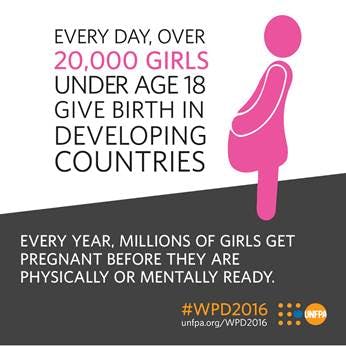
Earlier this week, we celebrated the annual World Population Day. It may not be a day on most people’s calendars, but it serves an important purpose: to remind us all that sexual and reproductive health and rights begin with one person, but matter to everyone.
We are at a tipping point: 40% of the world’s population (more than 1.8 billion people) are between the ages of 10 and 24, and 90% of these young people live in developing countries. Members of the largest youth generation in history are either in or entering their reproductive years. The ability of these young people to exercise their basic human rights and make empowered decisions about their sexual and reproductive health now will have an unprecedented impact on their future and the future for us all.
Access to quality sexual and reproductive health information, education, and services is crucial to empower young people, particularly young women, and enable them to finish their education, be economically secure, and lead healthy lives.
It also directly impacts the next generation: Women who are able to determine if and when they get pregnant through access to contraceptives and reproductive health services and information have healthier pregnancies and healthier babies.
But women and girls face unique challenges to their sexual and reproductive health and rights just because they are women and girls.
The United Nations Population Fund (UNFPA) estimates that 20% of all women experienced sexual violence as children and that 1 in 3 girls in the developing world is married before her 18th birthday. And every day, over 20,000 girls under age 18 give birth, too frequently before they are physically or mentally ready.

In fact, a new report from the Guttmacher Institute finds that an astounding 60% of sexually active adolescent girls between the ages of 15 to 19 in developing regions simply want to avoid getting pregnant but are not using an effective form of contraception – resulting in about half all adolescent pregnancies being unintended. Globally, HIV-related deaths are declining in all age groups except for adolescent girls.
It would only cost $21 per young person to fully meet her contraceptive needs.
Imagine the future we can create together with and for this rising generation by ensuring that this basic need is met.
That’s why the UN is focused on “Investing in Teenage Girls” as this year’s World Population Day theme. Join UNFPA in calling for strong investments for teenage girls to ensure that we deliver a world where every pregnancy is wanted, every childbirth is safe, and every young person’s potential is fulfilled. You can learn more at universalaccessproject.org.
[Photo: UNFPA Malawi]



 View All Blog Posts
View All Blog Posts